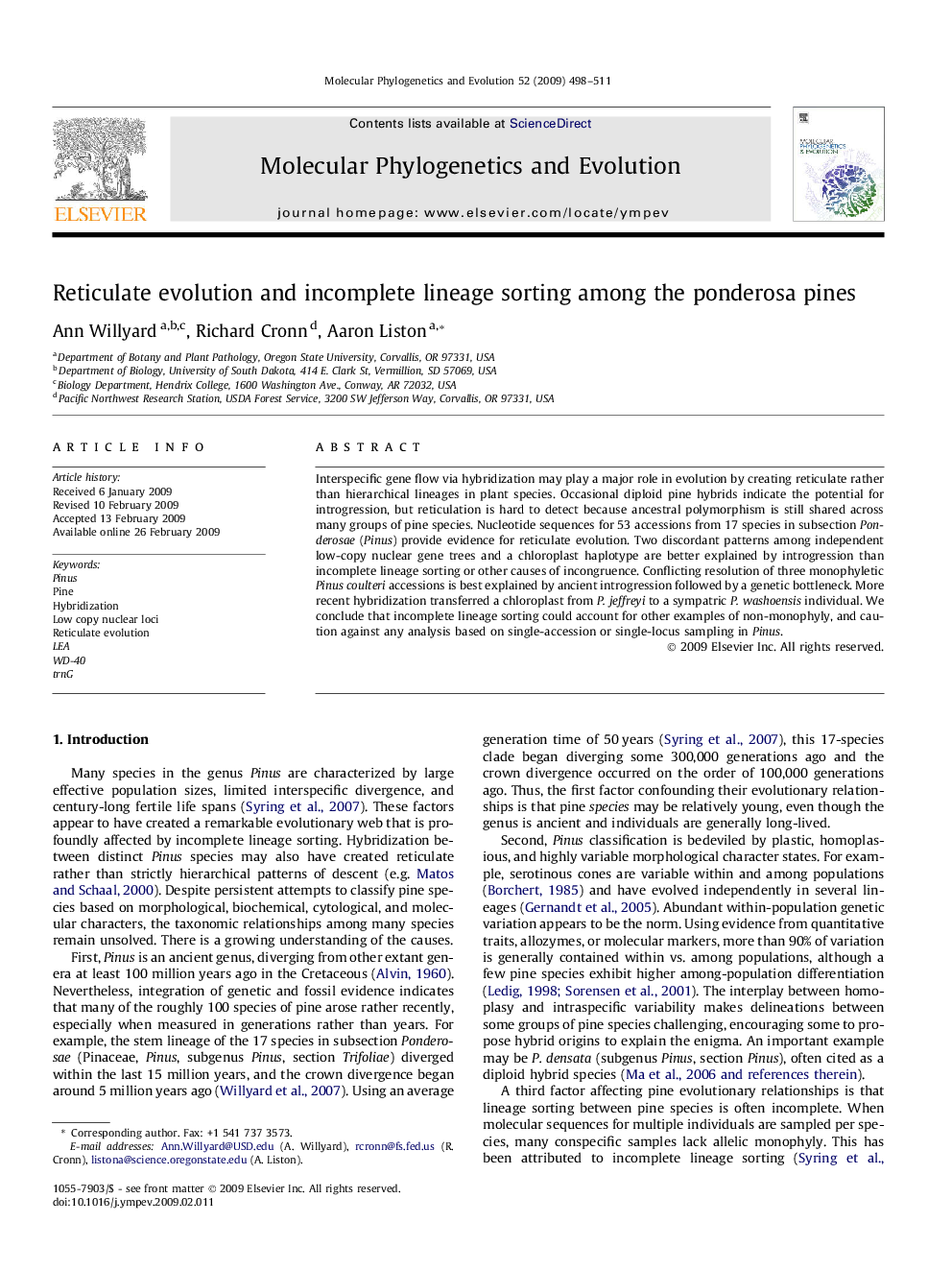| Article ID | Journal | Published Year | Pages | File Type |
|---|---|---|---|---|
| 2834407 | Molecular Phylogenetics and Evolution | 2009 | 14 Pages |
Interspecific gene flow via hybridization may play a major role in evolution by creating reticulate rather than hierarchical lineages in plant species. Occasional diploid pine hybrids indicate the potential for introgression, but reticulation is hard to detect because ancestral polymorphism is still shared across many groups of pine species. Nucleotide sequences for 53 accessions from 17 species in subsection Ponderosae (Pinus) provide evidence for reticulate evolution. Two discordant patterns among independent low-copy nuclear gene trees and a chloroplast haplotype are better explained by introgression than incomplete lineage sorting or other causes of incongruence. Conflicting resolution of three monophyletic Pinus coulteri accessions is best explained by ancient introgression followed by a genetic bottleneck. More recent hybridization transferred a chloroplast from P. jeffreyi to a sympatric P. washoensis individual. We conclude that incomplete lineage sorting could account for other examples of non-monophyly, and caution against any analysis based on single-accession or single-locus sampling in Pinus.
